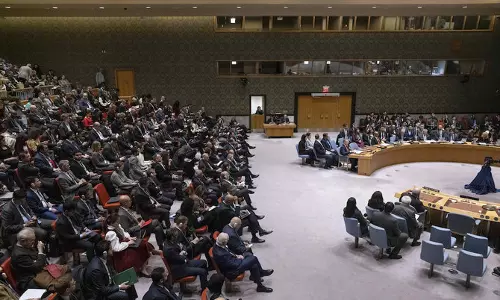
Let online media remain free
text_fieldsThe Centre is going to issue new guidelines for the use of social media. This is in response to the Supreme Court's intervention in the light of complaints and concerns expressed about the misuse of social media and the cases pending in different high courts. The Supreme Court sought the opinion of the Centre about control of content transmitted through internet, and how, and to what extent, internet service providers, big companies that make applications available and social media platforms can be regulated. In reply to this, the central government has informed that by next January the guidelines for online media will be ready. With the Supreme Court having transferred to itself all related cases pending in high courts, the moves to make new laws in this regard are likely to be gain pace.
The likely stake holders to come under the jurisdiction of the new guidelines are social media users and intermediaries including service providers and platforms. In the 2017 KS Puttaswamy case, the Supreme Court had given a judgement in which it declared right to privacy as an intrinsic part of the fundamental right to life and personal liberty, and stressed that any restriction or control should be subject to that dictum. The Centre's guidelines, which had been prepared in 2011 for internet intermediaries, was made public last year; comments on it were invited from varioius quarters following which confabulations were held among ministries. It is expected that all the views that came through this will be reflected in the final notification of guidelines to be issued in January. Although the process has passed through these phases, there is no guarantee about the fool proof nature of the guidelines that is in the works. In fact, the social situaton coupled with the stances of the central government, do no arouse much hopes about a good outcome in this regard. Since the subject impinges on the core of democracy and freedom of expression, it would be wise to avoid hasty moves.
Social media, which are currently more accessible to the common man than conventional media, for that very reason affect people's lives significantly. Whatsapp, Facebook, Twitter and TikTok do raise big concerns. For, social media have come to be the favourite channel of fake news and hate posts. Instances are not rare either of social media firms influencing elections in democratic countries. Then there is also the no small role played by online media in fetching global reach for communalism, racism and terrorism.. Among their users are those with no compunction about making even children the victims of porn trade. In spite ot all that, social media constitute a unique forum of diversity of opinion and self expression – with no one to censor it and where direct communication is possible. In some countries, this unfettered freedom has even become the cause of revolutionary social transformation, which may be reason why many regimes become afraid of it.
What is required is not to rein in conventional media and social media but to use them right and in a responsible manner. The technology that transmits media, ranging from print to blogging, are not either good or bad per se, but it is their users, goal and method that befoul them. Guidelines are needed not for the technology or the particular media, but those who use them – their brain, minds and approaches. Existing laws and regulations are sufficient to check aberrations that harm society. Flaws come in where they are implemented. An example is the use of defamation laws to suppress those media that criticise government and its foundational movements. And laws that should act as a shiled for the media, often fail to be effective; and the institutions for that purpose are relatively toothless. On the other hand, people who embolden elements that radiate venom, are entrenched even in seats of power too. When it transpires that even the prime minister and ministers are among those who 'follow' several who are adept at posting fake news and communal comments in twitter, what message does that carry? One way to guide and provide guildelines about how to exercise the freedom afforded by social media, is to purge the minds of users. If instead they are incentivised, it is sure to cause harm. Making more laws is not a solution, and wil lonely serve to weaken the healthy side of media. Let media exist free; and let the brains that use them stay clean. Any misuse will only become an excuse for governments to bring in controls. And controls will only make media freedom meaningless.























